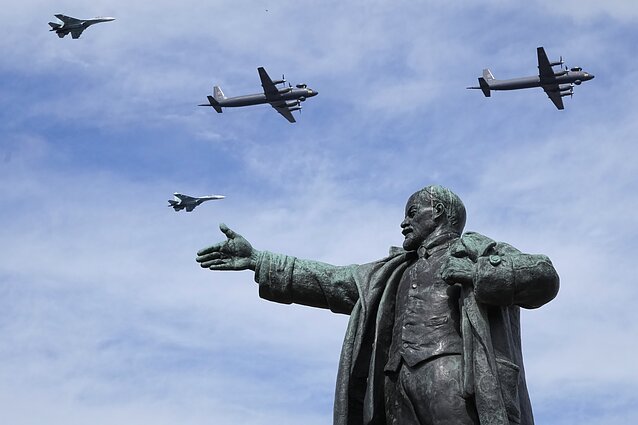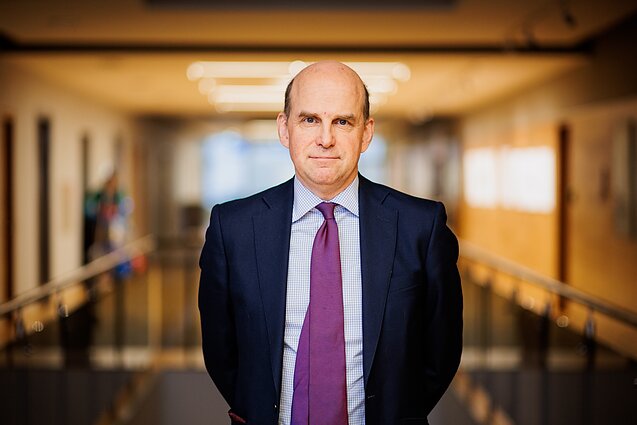
In an interview with LRT.lt (Jan. 21), NATO Assistant Secretary General for Defence Policy and Planning Angus Lapsley talked about Baltic defence and lessons from the war in Ukraine. Journalist Ieva Žvinakytė also asked him about plans for the NATO summit taking place in Vilnius this year.
Lapsley noted that the top priority is collective defence. At the summit in Madrid, the demand was to accelerate and intensify that process. “And that’s what we are going to deliver on in Vilnius.” The goal is a strengthened collective defence mechanism, reengineering planning and command – for example, moving from having four battle groups to having eight battle groups and having those ready to be scaled up into brigades very quickly. To modernize defence, “we need to keep thinking and delivering on integrating new technologies, thinking about the impact of China and the growing importance of the Indo Pacific on Euro Atlantic security, we need to think about resilience, and take some important steps forward there.”

The message on defence spending must be very clear, said Lapsely. There has been a commitment to move towards 2 percent of GDP since 2014. “Leaders in Vilnius will agree on a new pledge. It’ll be for them to decide exactly what that says. But it’s very clear that many allies now think that 2 percent is the minimum that you need to spend to make NATO secure.”
He recognizes that stronger defence is needed in the Baltics, one of the regions in NATO most vulnerable to possible Russian attack. And NATO is developing a family of military plans, war plans for that, which will be ready by the Vilnius summit.
The important issue now is not just the number of forces here, which has been scaled up, but the full range of capabilities that NATO could bring to bear to defend this region. “For example, some of the airpower that would be brought to bear to defend the Baltic countries might come from aircraft carriers that are sitting in the Norwegian Sea. It’s about the full range of capabilities that you can bring to bear. And that is what the alliance is focused on, … now with a sort of laser-like intensity.”
The question of how much military support is needed in the Baltics permanently, and how much should be in Germany is essentially a military conversation about the most effective way of achieving the desired effect, and is a decision for the military.
The commitment, backed by Germany in Lithuania, the UK and Estonia, and Canada in Latvia, of forces that are there and that can be here at very short notice are “more robust and more capable than we were planning for in the past”.
The burning question for everyone is whether current NATO plans are sufficient to defend the Baltic states. To this Mr. Lapsely said: “We are very confident that NATO’s ability to deter any kind of attack on NATO territory is solid. And we have seen in this war with Ukraine, that actually Russia has been very careful not to touch NATO territory.” This does not indicate complacency. There is a need “to improve our planning, our posture, our command structures, we need to invest in the right capabilities, not least because the nature of the threat is not static, it changes”, he explained. Sometimes the nature of the threat might be Russian ground forces, or Russian missiles, or aircraft, or submarines, and being able to respond to whatever the threat is. ”We are confident that we can deter and defend the Euro Atlantic area, but we’re also very realistic that we need to keep improving and we need to keep strengthening if we’re to keep pace with the threat we face”. Mr. Lapsely also underlined the importance of electronic warfare, of being able to process information very quickly to be able to react quickly.
As to Ukraine’s membership in NATO, Lapsely said that foreign ministers met in Bucharest just before Christmas and clearly reaffirmed the open-door pledge to Ukraine and to Georgia. The alliance is not currently in a position to answer question of “when and whether”. He concluded that “right now the alliance is focused on what we need to do as allies to help Ukraine win this war. Win this war and a lot of these debates will become a bit clearer”.



























